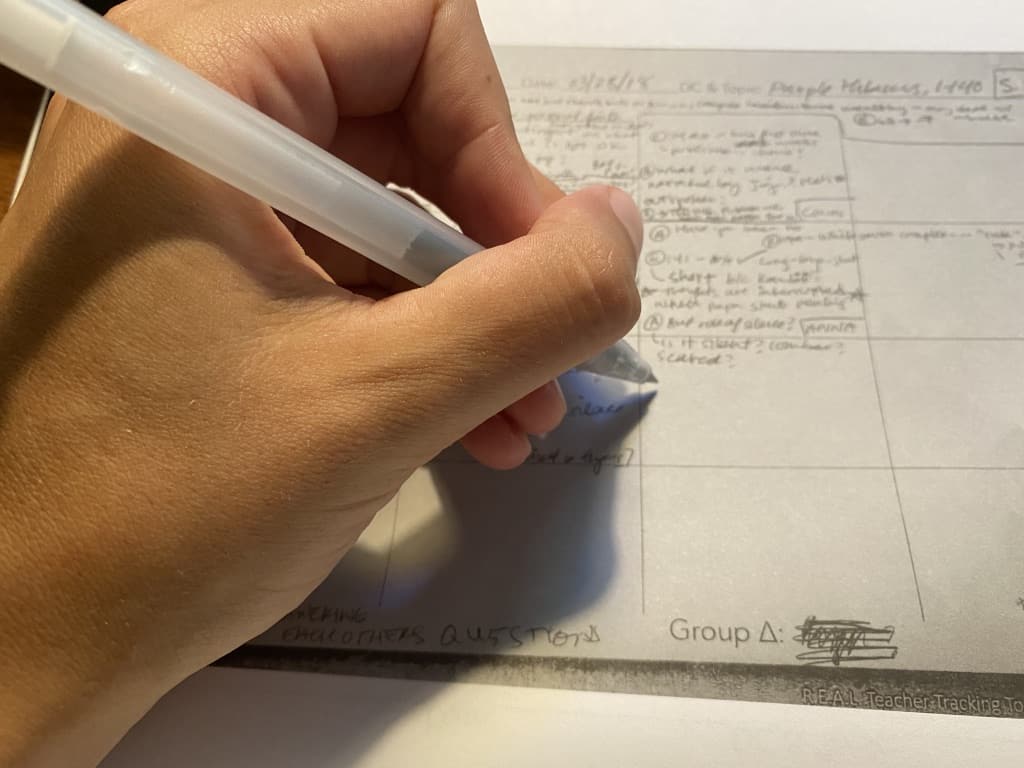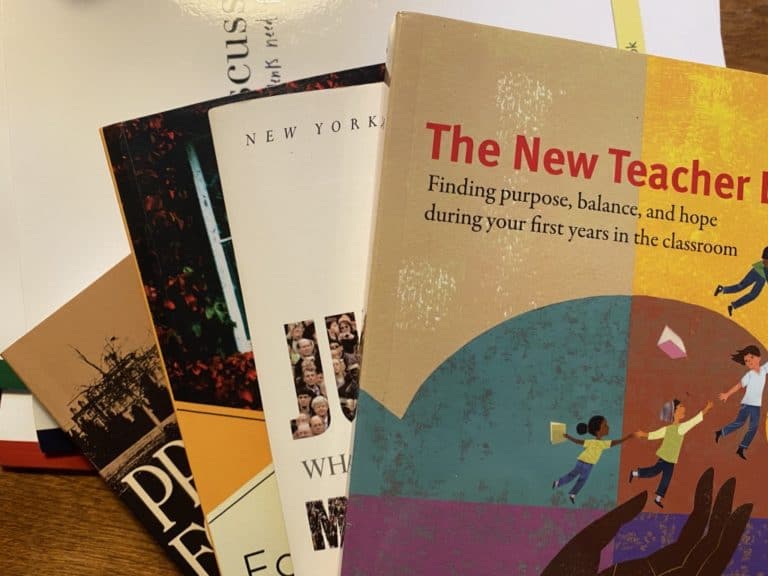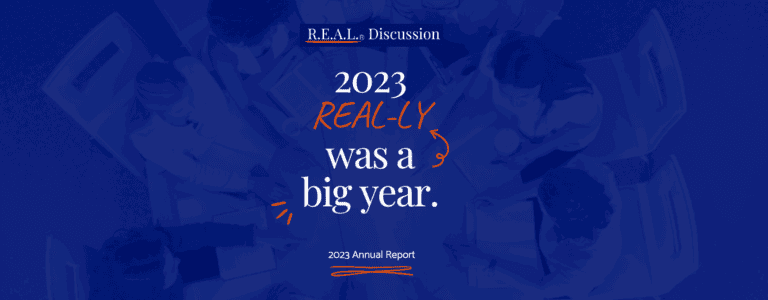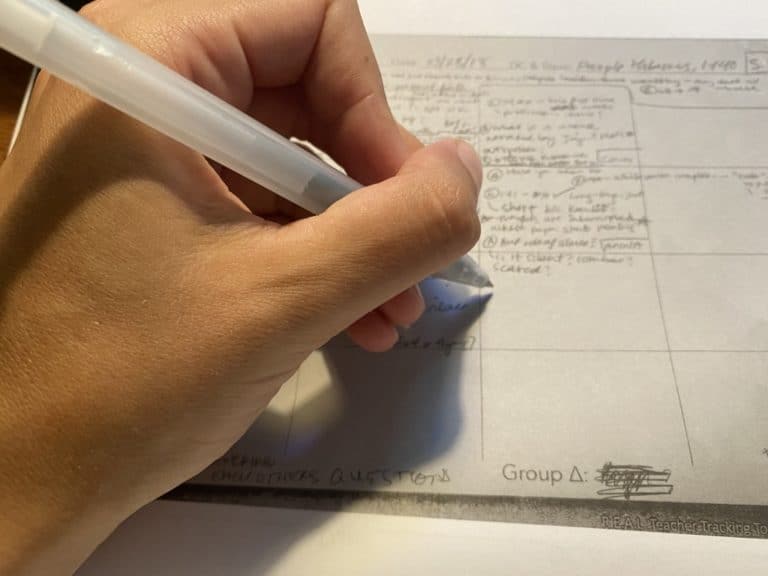Rituals, Rethinking Direct Instruction, and Redesigning Schools
Beyond the Syllabus posts offer a round-up of resources that are “practice-adjacent,” as Katherine often says. We offer recs for podcasts, fiction and non, and TED talks that offer delightful – if surprising – ways to rethink or enrich discussion practice.
Book: Sagan, Sasha. For Small Creatures Such as We: Rituals for Finding Meaning in our Unlikely World. The daughter of astronomer-writer Carl Sagan (think Contact and Cosmos), Sasha Sagan was raised to see science as a religion, and here, she writes chattily in first-person about her own parenting challenge: how can she orient her young daughter to the world through a belief framework and household calendar that simultaneously honors her cultural Judaism, her husband’s latent Protestantism, and her parents’ rigorous scientific outlook? Sagan is unapologetically secular but not at all cynical, with a reverent curiosity about how, why, and when rituals show up across different faiths and frameworks. As she investigates everything from recipes to prayers and astronomy to biology, she zeroes in on rituals as a tool for marking time, and offers utilitarian insights like: “religions don’t agree on which day is holy, but by in large they do agree that once a week you must check in with your beliefs, your community, and yourself.” For those of us who find ourselves feeling “small” in the face of a pandemic that has ruptured basic rhythms of (school) life, Sagan’s book offers a useful prompt for considering asking what rituals should remain — and where we can invent new ones.
Longread: Osborne, Jennifer. “The Death of Direct Instruction.” In her longread, posted to Medium’s “Startup” page last April, “self-proclaimed progressive educator” Jennifer Osborne surprises even herself by calling for (at least some moments of) direct instruction in an increasingly inquiry-based educational world. Osborne collates research from across decades citing the importance of guided instructional design in leading students to mastery of content and material. “Lower-level” skills and understanding, she reminds her audience, provides the basis for the higher-order, independent cognitive leaps to which contemporary classrooms aspire. We like Osborne’s piece for its clear, engaging navigation of what’s seen as a binary between constructivist and inquiry approaches to education. She challenges us to “do both”: incorporate scaffolded skills and intentional discovery into the flexible, student-driven classrooms that are en vogue at the moment.
TED Talk: Adrian, Marcus. “What I Learned Designing a School for the Deaf.” Architect Marcus Adrian recalls his work across two decades, reflecting on key design principles that he uses to structure buildings for the success of his differently abled clients. He argues that shifting away from disability and towards a “more varied view of human ability” has allowed him to discover more creative, intuitive, and effective design strategies to enhance learning in the schools on which he works. We enjoyed Adrian’s lucid description of his work as an architect to listen to and design effective structures that allow for those using his buildings to succeed — for example, identifying a bottleneck in an existing structure where noise creates cognitive chaos for students on a spectrum of deafness, or discerning where to place a teacher’s desk so that students can use as many sensory details as possible to connect to their lessons. His language, transferred to the work of a teacher, similarly challenges us to approach school spaces and curriculum with a single central question: how can we anticipate and mitigate challenges to learning before they unfold in order to harness and enhance students’ abilities?






